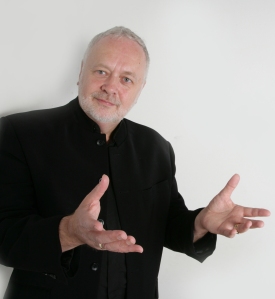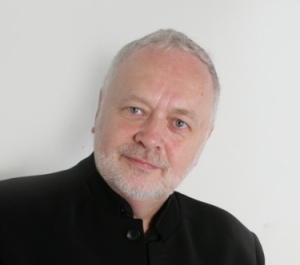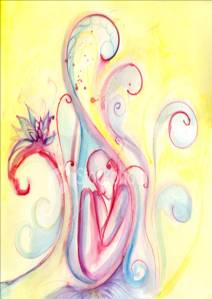This is the second part of my article and presents some of my own conclusions based on years of personal experiences, research, reading and of course personal filters. These conclusions are open to modification and may change as technology improves or experience dictates.
Firstly.
Ask yourself the following
Would you expect a martial arts teacher to present Dan grades to a student based on the student practising at home, even if with one or two mates, and would you want to trust the student as a bodyguard or support him in a competition?
Do you think there is a professional sports manager in the country who would accept a new player who had only ever kicked a ball around the streets or at school, and put him into a first or reserve team? And if you were a fan would you be happy about it?
If you owned a horse would you let a complete novice ride it who had practised at home on the arm of a chair?
Would you wish to be operated on by a medical student who had never been in theatre?
When considering the Questions presented
[1: Can skills involving personal relationships between two or more people be taught, and used/practised effectively, with the technology currently available to us, without the teacher/trainer being physically present?]
- Media training is effective at transferring information
The teacher/trainer can transfer information very effectively with current media technology. That information, when presented effectively, could become knowledge and assist in the trainee practising and developing new relationship skills.
- Media training will not provide appropriate relationship skills feedback
The media will not necessarily allow the transfer of the direct feedback to the trainee, particularly where the skills require the trainee to have pointed out to them unconscious states and behaviours ,which may not be useful to the intention of applying the skills. Nor will they be given the positive feedback that they are on the right track.
It is unlikely that the trainee will be practising the new skills with individuals she/he does not know, and there will probably be filters and patterns already in place which will inhibit direct, useful feedback,when practising, and because of already existing relationships may actually produce negative states and behaviours not useful in those relationships.
- Media training will exclude valuable information and feedback
The teacher/ trainer, even if video and audio feeds are used, will miss ,what may be, valuable information in the form of quickly changing states and contextual cues which in a live training could accelerate or enable learning in the trainee.
Note: The above could occur in a larger training where insufficient, skilled and proficient assistants are made available.
The trainee will likely miss the possibility of unconsciously modelling and assimilating the skills of the trainer, which the trainer could not present consciously or the skill becomes clunky and or incongruent.
The trainee will not see examples of the new skills from an observers or another’s point of view, with single and multiple participants offering the chance of experiencing the many variations of behaviours and states that make us human and relationships complex. And the effect of those states and behaviours on the trainee her/him self.
Additionally a relationship skill needs to be practised in an ongoing relationship (or is that too obvious to state)
[2:Can the teacher/trainer be confident that the individual being trained has assimilated the necessary skills to the extent that the teacher/trainer is willing to certify the individual as a practitioner who will use these skills as an Agent of Change with others?]
- Access to conscious knowledge will possibly be available
The teacher/trainer will be able to access the conscious knowledge of the trainee to a degree with the use of written or recorded replies to a series of questions.
- Access to unconscious knowledge and skills will be severely limited
As has already been alluded to however, the replies will not only be conscious, thus not including the unconscious states, behaviours and contexts in which they are being presented, they will also be missing a key component. That of showing the skills in the context of continuously changing and unpredictable relationship/s. The whole point of the training.
[3:Can the teacher/trainer be confident that, the individual professing to have learnt these skills is the same individual at the remote end of the technology being used?]
- Strict controls would need to be enforced
With the correct security and policing yes possibly. But lets not assume the integrity and honesty, whatever these labels mean to you, of human beings. We may not even be aware we are cheating consciously. It has been proposed that we lie to others 200 times a day.
[4:Can the individual being trained be confident that the certifying teacher/trainer is who they say they are, and possess the necessary skills required to teach/train and then certify them?]
- Participants must take responsibility for choosing an appropriate teacher/trainer
Yes the prospective trainee can check credentials and even meet with the teacher/trainer, who may have an incredible CV. It doesn’t mean that the same teacher trainer will be marking the trainee’s input, nor does it guarantee that the teacher/trainer walks her/his walk and is able to demonstrate the skills needed to assist that particular trainee.
The most important relationship to begin with will be that of the teacher/trainer and trainee, in a relationship focussed programme such as NLP practitioner, how could it not be.
Conclusions
- Quality,not speed,is key
Although I might understand the propensity for teachers/trainers to want to find new ways to present to participants a new set of skills, and in some contexts remote media training may be applicable, I find it hard to conceive of this being the case when considering relationship training certification.
- Tools,techniques and knowledge do not guarantee assimilation of skills
Yes some tools and techniques can be taught and knowledge imparted, yet to expect any level of quality to be ensured, and isn’t that the point of certification, without the teacher/trainer and trainee working in concert together, in an environment where both can congruently present and practice the skills within ongoing relationships, seems to me to be naive and possibly counterproductive.
The trainee may receive a certificate and with it the unfounded confidence to practise, with other individuals, a set of skills that could open Pandora’s box for the client or friend, and the teacher/trainer and trainee with an interesting professional or insurance issue or two.
- Relationship skills training is a double edged sword
Any prospective trainee looking to be certified should equally be wary of such programmes as I do not believe they will receive the quality training appropriate to what can be life changing fields. Additionally the participants of such a programme should recognise that they themselves will have patterns shifted, and personal changes, when learning these new skills and may not be aware of the consequences of not dealing with them or being guided by a skilled practitioner as they present themselves.
- Short cut’s very often degrade quality
The field of change should also be aware that short cuts for the purpose of saving time and money, no matter how well intentioned, by teachers/trainers and trainees can only result in a degradation of quality in whatever field, and thereby a loss in confidence in those looking to change or make use of the skills available in a specific field.
- A decrease in quality will lead to a loss of confidence and earning’s
The public sector, health and business arenas have begun to accept new ways of providing assistance to their staff in the form of communication, relationship and change programmes. It will not take them long in reversing that trend if there is an increase in certified practitioners ill equipped to deal with the complex relationship building organisms they profess to be assisting.
A personal note
- I remain to be convinced
I for one,based on my current experiences and understanding,will not be offering certification for relationship programmes online, and will continue to insist that participants show me evidence of their skills personally.And where a participant is joining an advanced and or additional programme,having previously been certified elsewhere,a referral from a trainer that I know,has the necessary skills, and has trained them in person,before issuing certificates or acting as a co-signatory on my programmes or an-others.
Martin Wyse


